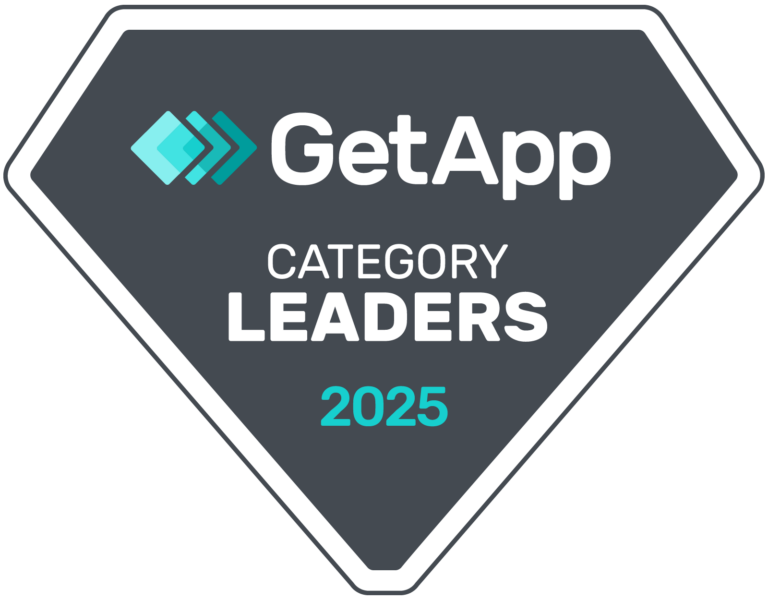As the learning and development landscape continues to shift toward emerging technologies like AI coaching, immersive simulation training, and interactive roleplaying, a multitude of new sales, support, and call center training providers have emerged, from entirely new vendors to established SaaS providers launching new product lines.
The ones that most effectively utilize AI to create dynamic, realistic conversational scenarios have quickly gained prominence in this new simulated training and AI roleplay software category.
One of these new technologies is Zenarate, an AI platform that combines simulation-based workflow training and AI coaching into a single platform, enabling sales organizations, call centers, service teams, and other customer-facing use cases.
We’ve pulled together the research on Zenarate, one of the top solutions, and its competitors. Keep reading to learn more about its pricing, some of its critical limitations, and explore its alternatives.
What Is Zenarate?
Zenarate is a AI simulation training software that infuses AI coaching and simulated training into L&D strategies, specifically targeting sales organizations, call centers, and other customer-facing teams. It enables L&D leaders to utilize natural language processing and understanding, as well as GenAI, to create engaging and lifelike simulated experiences that train sales teams, help desk agents, and service teams with personalized, interactive experiences, helping them build confidence in a risk-free, hands-on setting.
In these immersive interactions, learners can chat with realistic AI coaches, receive real-time feedback, and refine their key soft skills and product knowledge before interacting with real customers. Zenarate uses intelligent reinforcement to automatically pinpoint skill gaps and assign relevant training opportunities to close them. It collects learner performance data on simulation scorecards, which can be used to certify that individual employees are ready to work with live customers.
Zenarate’s core AI training features include:
- Immersive simulation training and role-play scenarios that coach service agents on best practices for handling live calls.
- Realistic AI coaches that reduce the workload of sales and contact center managers.
- Widespread language support for globally-based contact centers.
What are the downsides and limitations of Zenarate?
We’ve compiled insights from user-generated review sites like Zenarate’s G2 profile, as well as publically-available information, to showcase potential limitations of the Zenarate platform, including:
- Not-so-lifelike simulations: Although some reviews of Zenarate on G2 are positive overall, they note that its simulations can feel somewhat linear, resulting in a less natural learning flow. This may not be an issue for large companies in highly saturated industries, but those in more niche fields may need to invest more time and energy in building out more specific and lifelike scripts.
- Inadequate AI coaching feedback: More G2 reviews demonstrate some drawbacks to Zenarate’s AI coaching. They say that agents who had already developed basic skills did not feel like they benefited as much from Zenarate’s role-playing scenarios and performance feedback, because the feedback wasn’t nuanced or detailed enough to pinpoint exactly what behaviors needed to change and how.
- Lack of in-app guidance post-training: Zenarate focuses on solutions for employee onboarding and training. While this is a step up from classroom-based learning and static LMS courses, it fails to support employees post-training, in the flow of work. With a solution like Whatfix, organizations can enable employees in their daily workflows with guided experiences, just-in-time help, and self-service help, enabling users where they work, when they need it.
- Tedious content maintenance: Other reviews mention that it’s tedious and time-consuming to create and maintain accurate content, especially as processes change and product lines evolve.
- Lack of online presence: As previously mentioned, there are no online mentions of pricing for Zenarate. That isn’t rare in the enterprise SaaS space, but Zenarate also lacks the footprint of larger competitors, with only 33 reviews on G2 (in comparison to larger competitors like Whatfix Mirror with 450+ reviews on G2 and Second Nature AI with 300+).
5 Best Zenarate Alternatives for AI Coaching & Simulation Training
Enterprise teams often require more robust, integrated, and scalable AI training environments than what Zenarate provides. Below are five alternatives better suited for large organizations seeking sophisticated, all-in-one AI simulation and role-play coaching solutions from established enterprise vendors
1. Whatfix Mirror
- Review Rating: 4.6 out of 5 stars across 480 reviews
- Get a Demo
Whatfix Mirror is an AI simulation training and AI roleplay software that enables customer-facing teams (like sales, customer success, and service teams) with personalized AI coaching and realistic workflow training to build user confidence with hands-on learning, accelerate time-to-proficiency, and assess readiness for real-world situations.

L&D leaders across sales and service teams to clone CRM, help desk, and other back-end tasks and workflows to provide immersive, simulation training in a risk-free environment, with no engineering resources required. This makes it easy to create interactive, hands-on training instances that allow employees to learn by doing their tasks and workflows, without risking the impact on live data. Employees are further empowered with AI-powered scenarios tailored to their role, with conversational-based AI roleplay that adapts to user input and skillset and provides on-demand, contextual coaching that evolves alongside employees.

Mirror is the only AI roleplay platform that combines powerful AI simulation and roleplay training with the power of in-app guidance and on-demand performance support via the Whatfix Digital Adoption Platform. Post-simulation training, employees require continuous performance support, reinforcement training, and new training when processes change or employees face infrequently done or complex tasks.
With Whatfix DAP, enable employees with in-app guided experiences like Flows, Task Lists, and Smart Tips to walk users through correct workflow steps and nudge users to take action. Self Help integrates with your knowledge repositories, providing end-users with an AI help assistant that is trained on your knowledge base, company policies, SOPs, product knowledge, and service best practices. Employees can use AI conversational search to ask questions, with Self Help surfacing best practices, summarizing long documents, and providing suggestions on further help, like identifying additional documentation or prompting an in-app Flow.
While Whatfix Mirror and Zenarate share many simulation training and AI roleplay capabilities, Whatfix stands alone in its unique offering that blends AI simulation training and roleplay with its in-app guidance and performance support that makes it a category leader in enabling customer-facing teams with the hands-on training, on-demand support, and contextual guidance they need to unlock productivity, maximize technology usage, and achieve business goals.
Key features of Whatfix Mirror include:
- Personalized coaching with AI roleplay exercises and scenario training across a variety of use cases, from sales objection handling, conflict resolution, product knowledge training, and more.
- Clone application environments and create simulated training workflows without technical resources to empower employees with hands-on learning in a risk-free environment.
- Analyze performance and assess agent readiness for real-world calls with AI.
- Create in-app guidance with a no-code editor to support employees at the moment of need, ensure process compliance, and drive task adoption via Flows, Task Lists, and Smart Tips.
- Support users in the flow of work with an AI-powered self-service help center that integrates with your knowledge repositories (from SOPs, roleplay library, internal policies, knowledge base, etc.) to bring knowledge and help content directly into your back-end applications like your CRM or help desk.
- Expand what you can do with Whatfix AI, including AI Agents that proactively surface trends and identify user pain points across your workflows and user behavior, recommend and author new in-app content, and adapt in-app guidance on the fly by contextualizing content based on user role or input.
Ready to get started with Whatfix Mirror? Request a demo to speak with a solutions engineer today!
2. Symtrain
- Review Rating: 4.9 out of 5 stars across 25 reviews
SymTrain is an AI training and coaching platform specifically designed to facilitate agent training for call centers. It works by using AI to simulate customer conversations and roleplay common customer service scenarios.
SymTrain delivers AI coaching across the CX or sales agent lifecycle, from streamlining recruitment processes, optimizing onboarding, and providing ongoing training opportunities. Its AI features automate the complex processes involved in monitoring performance benchmarks and analyzing progress, so leaders can be confident as they begin allowing successful learners to go live and continue to provide coaching opportunities to those who need additional training.
Key features of Symtrain include:
- Simulated conversations via voice, chat, and email
- GenAI simulation tools
- QA Performance Tracking
- Soft skills and compliance training
3. Cresta
- Review Rating: 4.3 out of 5 stars across 42 reviews
Cresta is an AI call center coaching platform that provides interactive training to call centers, help desks, and other support agents. Cresta utilizes customer interaction data to generate insights, which it then converts into coaching insights and new workflows.
Cresta’s no-code AI orchestration (Opera) empowers leaders by allowing them to fine-tune models and design custom AI workflows tailored to specific team needs and organizational goals. This solution also includes stand-alone AI agents, typing efficiency features for faster responses, and AI simulation tools for immersive agent training and testing.
Key features of Cresta include:
- Human-centric AI CX agents
- Personalized coaching plans
- Conversation intelligence
- Opera orchestration engine
4. Balto AI
- Review Rating: 4.8 out of 5 stars across 560 reviews
Balto AI is a real-time call guidance tool designed for contact centers. It utilizes AI to generate insights, monitor call compliance and quality, offer real-time support and conversation coaching, and automate conversation note-taking to keep the workflow moving smoothly.
Balto’s real-time guidance features provide agents with prompts, compliance checklists, and coaching messages during customer interactions for continuous improvement through hands-on learning and ample feedback.
Balto’s supervisor tools include automatic issue escalation, weekly team insights, and BaltoGPT insights and trends, ensuring that managers and coaches have all the information they need to lead their teams to success.
This solution is ideal for organizations that prioritize data privacy, offering a range of call center QA and compliance features, as well as automatic scrubbing of sensitive data for streamlined compliance management.
Key features of Balto.ai include:
- Intelligent agent guidance
- Automatic conversation summaries for CRM
- AI-compliance monitoring
- Automated note-taking
5. Observe AI
- Review Rating: 4.6 out of 5 out of 2326 reviews
Observe AI is a conversation intelligence platform designed for contact centers. This platform utilizes real-time call data to develop insights and deliver suggestions directly during the call, enabling super-fast behavior adaptation. Managers can also use that data as coaching moments or to plan full-scale, personalized learning journeys between calls.
Observe also includes intelligent voice-first AI agents, as well as more traditional chatbots, and features AI copilot capabilities to guide human agents and automate workflows. Observe ‘s trend dashboard helps leaders strategize, perform QA, and ensure continuous improvement over time.
This support and oversight translates to tangible business benefits. Reviews on Observe’s website report a 23% reduction in average hold time and a 97% improvement in compliance monitoring.
Key features of Observe AI include:
- Voice and Chat AI agents for coaching and training.
- Built-in AI guardrails, auditing, and data governance.
- Screen recording for agent performance monitoring.
- AI-powered reporting and call analytics.
Why Whatfix Is the Best Zenarate Alternative for AI Simulation and Roleplay Training
Enterprise sales and call center training doesn’t end when a simulation concludes. Whatfix extends learning beyond AI roleplay by combining simulation-based training with in-app guidance, performance analytics, and self-service support. This integration empowers employees to practice, apply, and reinforce new skills directly within their daily workflows. While Zenarate and similar platforms stop at simulated training, Whatfix equips organizations with continuous enablement; coaching employees in real-world applications, driving long-term behavior change, and closing the gap between learning and execution.
Whatfix Mirror stands alone in scalability and operational efficiency. Its no-code environment allows L&D and enablement teams to replicate complex CRM, help desk, or ERP workflows without engineering dependencies. Simulated environments can be spun up quickly for new feature rollouts or onboarding cohorts, while AI-driven roleplays adapt in real time to each learner’s progress and skill level. Combined with Whatfix’s robust analytics, leaders gain measurable visibility into learner readiness, productivity, and impact on key business metrics.

Beyond simulation, Whatfix’s Digital Adoption Platform extends the value of every training investment. Post-training, employees receive in-app Flows, Smart Tips, and Self Help powered by AI—turning every workflow into an opportunity for just-in-time learning. This continuous cycle of simulation, performance support, and real-time guidance transforms how enterprises enable their sales and support teams, making Whatfix Mirror the most comprehensive and enterprise-ready alternative to Zenarate.

Fortune 500 companies, including AutoZone, Cardinal Health, Caterpillar, Experian, Meta, and UPS, trust Whatfix as their all-in-one platform to facilitate simulation training, AI roleplay, and in-app performance support that accelerates user proficiency, unlocks next-level productivity, and powers digital excellence.
Ready to get started with Whatfix Mirror? Request a demo to speak with a solutions engineer today!





